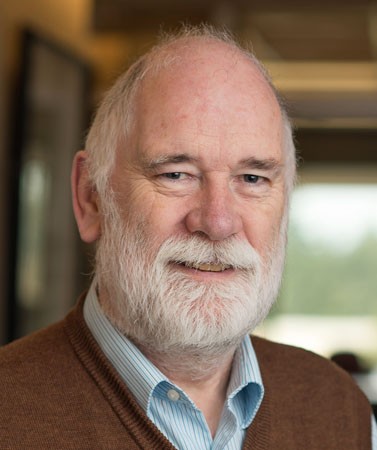Hugh M Neary
Research Area
About
I am Professor Emeritus.
My current research is focused on evolutionary approaches to property rights.
I obtained my Ph.D. from the University of California in Berkeley, California, USA.
Teaching
Research
RECENT PAPERS
We analyze recent proposals from social scientists suggesting that when sacred values are involved in conflicts, progress towards negotiation can be made if the contending parties make symbolic gestures acknowledging the sacred values of their rivals. We incorporate this possibility in a model in which the allocation of a sacred good can be resolved either by direct conflict or by negotiations made possible through (costly) symbolic gestures. We identify conditions under which a negotiated outcome may obtain. Extreme asymmetries in military power and bargaining strength are shown to militate against the possibility of negotiation. Furthermore, for a negotiated solution to be feasible, perceptions regarding the preferences of the organization mediating the negotiations are very important. While isolating some of the root causes for the recalcitrance of conflicts over sacred goods, our model provides cautious optimism for the role of symbolic gestures.
We argue that the sense of identity is a prime motivator of terrorist activities and investigate its implications for defence against terrorism. Our framework models the decentralized terrorism (not sponsored by any state) that is characteristic of contemporary reality. Terrorist responses to perceived affronts to identity increase with the intensity of spite towards out-groups and altruism towards in-groups. We show that, while the intensity of terrorist actions is magnified by in-group altruism, it is out-group spite that is the more essential feature of identity that is pertinent to decentralized terrorism. Altruism towards in-group member, however, plays an important role in overcoming the potential free-riding of terrorists, making individual terrorist activities possible without coordination - despite the fact that such activities are of a public good nature from the terrorists' viewpoint. We show that the cost of ignoring identity considerations of terrorists can be considerable to countries defending against terrorism. When social identity is taken into account, we show that some actions that are espoused in the literature as being optimal for a country for economic or geopolitical reasons lack credibility (in the sense of Schelling, 1960).
Though economics claims that sunk costs should not figure in current decision-making, there is ample evidence to suggest that people squander resources by honoring bygones. We argue that such wastage of resources was tolerated in our evolutionary past by Nature because it served fitness-enhancing functions. In this paper, we propose and model two such functions: the first in a non-strategic setting and the second in a strategic one. In the former, we demonstrate how the honoring of sunk costs could have arisen as a commitment device that Nature found expedient when the emotional and rational centers of the brain conflict over temptations that may sabotage long-term investments. By applying this idea to the self-concept, we argue that this model provides a rationale for cognitive dissonance, a well-established phenomenon in social psychology. The strategic reason we offer for the salience of sunk costs is that it provides the producers of goods an edge in contests over their output with potential interlopers. In either scenario, we show that Nature would have hardwired a concern for bygones.
JOURNAL ARTICLES
Prosperity without conflict. (with F. Gonzalez)
Journal of Public Economics, 92: 2170-2181, October 2008.
Dynamic Consistency in Incentive Planning with a Material Input.
Journal of Economic Behavior and Organization. 44 (2001): 315 - 332.
Equilibrium Structure in an Economic Model of Conflict.
Economic Inquiry. 35.3 (July, 1997): 480 - 497.
Strategic Investment and the Co-existence of Labour-managed and Profit Maximizing Firms.
(with David Ulph)
Canadian Journal of Economics. 30.2 (May, 1997).
A Comparison of Rent-Seeking Models and Economic Models of Conflict.
Public Choice. 93 (1997): 373 - 388.
Output Shares in Bilateral Agency Contracts.
(with Ralph A. Winter)
Journal of Economic Theory. 66.2 (August, 1995): 609 - 614.
A Non-co-operative Bargaining Model of Membership Expansion in a Producer Co-operative.
Managerial and Decision Economics. 14.5 (October, 1993): 409 - 419.
Some General Equilibrium Aspects of a Labor-managed Economy with Monopoly Elements.
Journal of Comparative Economics. 14.5 (December, 1992): 633 - 654.
A Simple Macroeconomic Model of a Labour Managed Economy.
European Economic Review. 34.5 (July, 1990): 1023 - 1039.
The Comparative Statics of the Ward-Domar LMF: A Profit Function Approach.
Journal of Comparative Economics. 12.2 (June, 1988): 159 - 181.
Output, Work-Hours and Employment in the Short-run of a Labour-Managed Firm.
(with Miyazaki, Hajime)
Economic Journal. 95 (December, 1985): 1035 - 1048.
The Labour-Managed Firm in Monopolistic Competition.
Economica. 52 (November, 1985): 435 - 447.
'Labor-Managed Cournot Oligopoly and Industry Output': Comment.
Journal of Comparative Economics. 8.3 (September, 1984): 322 - 327.
Decentralized Control of a Socialist Industry.
(with David Donaldson)
Canadian Journal of Economics. 17.1 (February, 1984): 99 - 109.
The Illyrian Firm Revisited.
(With Miyazaki, Hajime)
The Bell Journal of Economics. 14.1 (Spring, 1983): 259 - 270.
Irish Agriculture and the E.E.C.: Some Macro-Economic Issues.
(with John O'Hagan)
Irish Journal of Agricultural Economics. 4.1 (1972-3): 107 - 111.
